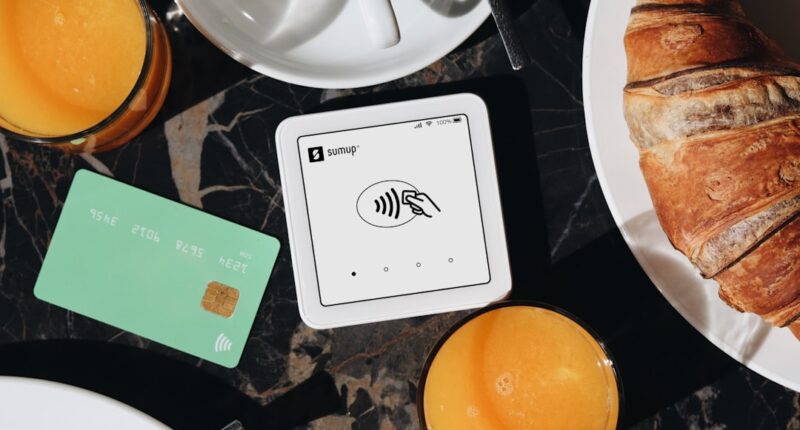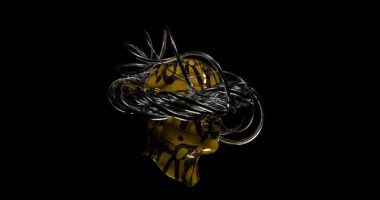NFT business cards represent a novel intersection of technology and personal branding, leveraging the unique properties of non-fungible tokens (NFTs) to create digital representations of traditional business cards. Unlike conventional business cards, which are typically printed on paper and can be easily lost or damaged, NFT business cards exist on a blockchain, ensuring their permanence and authenticity. Each NFT business card is unique, containing specific information about the individual or organization it represents, such as contact details, social media links, and even multimedia elements like videos or images.
The concept of NFT business cards is rooted in the broader trend of digitization and the increasing importance of online presence in professional networking. As more interactions occur in virtual spaces, the need for innovative tools that facilitate connections has grown.
NFT business cards not only serve as a modern alternative to traditional cards but also embody the ethos of the digital age, where ownership and authenticity can be verified through blockchain technology. This shift reflects a broader cultural movement towards embracing digital assets and rethinking how we present ourselves in professional contexts.
Key Takeaways
- NFT business cards are digital business cards that are stored on a blockchain, making them unique and secure.
- NFT business cards work by using blockchain technology to create a digital asset that represents the owner’s professional information.
- The benefits of using NFT business cards include increased security, easy sharing and updating, and the potential for increased networking opportunities.
- To create and distribute NFT business cards, individuals can use NFT marketplaces or platforms that specialize in digital collectibles.
- NFT business cards have the potential to revolutionize traditional networking by providing a more efficient and modern way to exchange professional information.
How do NFT business cards work?
The functionality of NFT business cards hinges on blockchain technology, which provides a decentralized ledger that records ownership and transaction history. When an individual creates an NFT business card, they mint it on a blockchain platform, such as Ethereum or Binance Smart Chain. This process involves generating a unique token that encapsulates the card’s information and attributes.
The NFT can include various data types, from basic text to complex multimedia elements, all securely stored on the blockchain. Once minted, the NFT business card can be shared with others through various digital channels. Recipients can view the card using compatible wallets or platforms that support NFTs.
The ownership of the card is recorded on the blockchain, ensuring that it cannot be duplicated or altered without the owner’s consent. This feature not only enhances security but also adds a layer of prestige to the cardholder, as owning an NFT is often associated with being at the forefront of technological trends. Furthermore, NFT business cards can be programmed with smart contracts that allow for interactive features, such as scheduling meetings or linking directly to social media profiles.
The benefits of using NFT business cards

One of the primary advantages of NFT business cards is their ability to stand out in a crowded marketplace. In an era where traditional business cards can easily be overlooked or discarded, an NFT card offers a visually engaging and interactive experience that captures attention. The incorporation of multimedia elements—such as animations, videos, or sound—can create a memorable impression that resonates with potential clients or collaborators.
This enhanced engagement can lead to more meaningful connections and opportunities. Additionally, NFT business cards provide a level of security and authenticity that traditional cards cannot match. The blockchain technology underlying NFTs ensures that each card is verifiable and tamper-proof.
This feature is particularly beneficial in industries where trust and credibility are paramount. For instance, professionals in finance or technology can leverage the inherent security of NFTs to establish their legitimacy and expertise. Moreover, the ability to track ownership and transactions on the blockchain allows for greater transparency in networking interactions, fostering trust among peers.
How to create and distribute NFT business cards
Creating an NFT business card involves several steps, starting with selecting a blockchain platform that supports NFT minting.
Once a platform is chosen, users can utilize various tools and marketplaces—such as OpenSea or Rarible—to design their cards.
These platforms often provide user-friendly interfaces that allow individuals to upload images, add text, and incorporate multimedia elements seamlessly. After designing the card, the next step is minting it as an NFT. This process typically requires a digital wallet to store the NFT and some cryptocurrency to cover transaction fees associated with minting on the blockchain.
Once minted, users can distribute their NFT business cards through various channels. They can share them via email, social media platforms, or even QR codes that link directly to the NFT on a marketplace. This flexibility in distribution allows for easy sharing during networking events or conferences, where traditional methods may fall short.
The impact of NFT business cards on traditional networking
The emergence of NFT business cards is poised to disrupt traditional networking practices significantly. In-person networking events often rely on physical exchanges of business cards, which can lead to cluttered wallets and forgotten connections. By contrast, NFT business cards streamline this process by providing a digital solution that is easily accessible and shareable.
This shift not only reduces waste associated with paper cards but also aligns with growing environmental concerns about sustainability in business practices. Moreover, NFT business cards facilitate global networking opportunities in ways that traditional cards cannot. As professionals increasingly operate in remote or hybrid environments, having a digital card that can be shared across borders without logistical constraints becomes invaluable.
This capability allows individuals to connect with potential partners or clients worldwide instantly. Additionally, the integration of social media links and interactive features within NFT business cards encourages ongoing engagement beyond initial introductions, fostering deeper professional relationships.
The future of NFT business cards in the digital world

As digital transformation continues to reshape various industries, the future of NFT business cards appears promising. With advancements in technology and increasing acceptance of digital assets, these innovative tools are likely to gain traction among professionals seeking to enhance their networking strategies. The potential for customization and interactivity within NFT business cards opens up new avenues for personal branding and marketing efforts.
Furthermore, as more businesses adopt blockchain technology for various applications—from supply chain management to secure transactions—the familiarity with NFTs will likely grow among professionals across sectors. This increased awareness could lead to widespread adoption of NFT business cards as standard networking tools in professional settings. Additionally, as platforms evolve to offer more sophisticated features for creating and managing NFTs, users will have access to even more capabilities for enhancing their digital presence.
Potential challenges and limitations of NFT business cards
Despite their many advantages, NFT business cards also face several challenges and limitations that could hinder widespread adoption. One significant barrier is the technical knowledge required to create and manage NFTs effectively. While platforms are becoming more user-friendly, there remains a learning curve for individuals unfamiliar with blockchain technology or digital wallets.
This complexity may deter some professionals from embracing this innovative approach to networking. Another challenge lies in the environmental concerns associated with blockchain technology, particularly proof-of-work systems like Ethereum. The energy consumption required for minting and trading NFTs has raised questions about sustainability and carbon footprints in the digital space.
As awareness of climate change grows, professionals may hesitate to adopt practices perceived as environmentally harmful. Addressing these concerns through more sustainable blockchain solutions will be crucial for the long-term viability of NFT business cards.
Tips for maximizing the effectiveness of NFT business cards in networking
To fully leverage the potential of NFT business cards in networking scenarios, individuals should consider several strategies aimed at enhancing their impact. First and foremost, it is essential to ensure that the design of the card reflects personal branding effectively. A visually appealing card that aligns with one’s professional identity can create a lasting impression on recipients.
Incorporating unique elements—such as custom artwork or animations—can further differentiate one’s card from others. Additionally, actively promoting the use of NFT business cards within professional circles can help normalize their adoption. Sharing experiences and success stories related to using these digital tools can encourage peers to explore their benefits.
Engaging with communities focused on NFTs and blockchain technology can also provide valuable insights into best practices for creating and distributing these innovative networking tools. Finally, integrating interactive features into NFT business cards can significantly enhance their effectiveness. For instance, including links to personal websites or scheduling tools can facilitate immediate follow-up actions after initial meetings.
By making it easy for recipients to engage further, professionals can foster stronger connections that extend beyond mere introductions.
In the context of exploring innovative digital networking tools, you might find the article “NFT Business Cards: The Future of Digital Networking” particularly intriguing. For further reading and to deepen your understanding of the evolving landscape of NFTs and their applications in professional settings, consider visiting NFT Jobs. This website offers a comprehensive look at how NFTs are being integrated into various career sectors, providing valuable insights and opportunities for professionals interested in leveraging blockchain technology for networking and personal branding.
FAQs
What are NFT business cards?
NFT business cards are digital representations of traditional paper business cards that are stored on a blockchain. They are unique, non-fungible tokens that can be bought, sold, and traded like any other NFT.
How do NFT business cards work?
NFT business cards work by using blockchain technology to create a digital representation of a traditional business card. Each NFT business card is unique and can include various types of information such as contact details, social media links, and portfolio samples.
What are the benefits of using NFT business cards?
Some of the benefits of using NFT business cards include their uniqueness, ability to showcase creativity, and potential for increased networking opportunities. They also provide a more environmentally friendly alternative to traditional paper business cards.
How can NFT business cards be used for networking?
NFT business cards can be used for networking by allowing individuals to easily share their contact information and professional details with others in a digital format. They can also serve as a conversation starter and a way to showcase creativity and innovation.
Are NFT business cards secure?
NFT business cards are considered secure due to the nature of blockchain technology, which provides a tamper-proof and transparent way to store and transfer digital assets. However, it is important to use reputable platforms and take necessary precautions to protect the privacy and security of the information included in the NFT business card.





